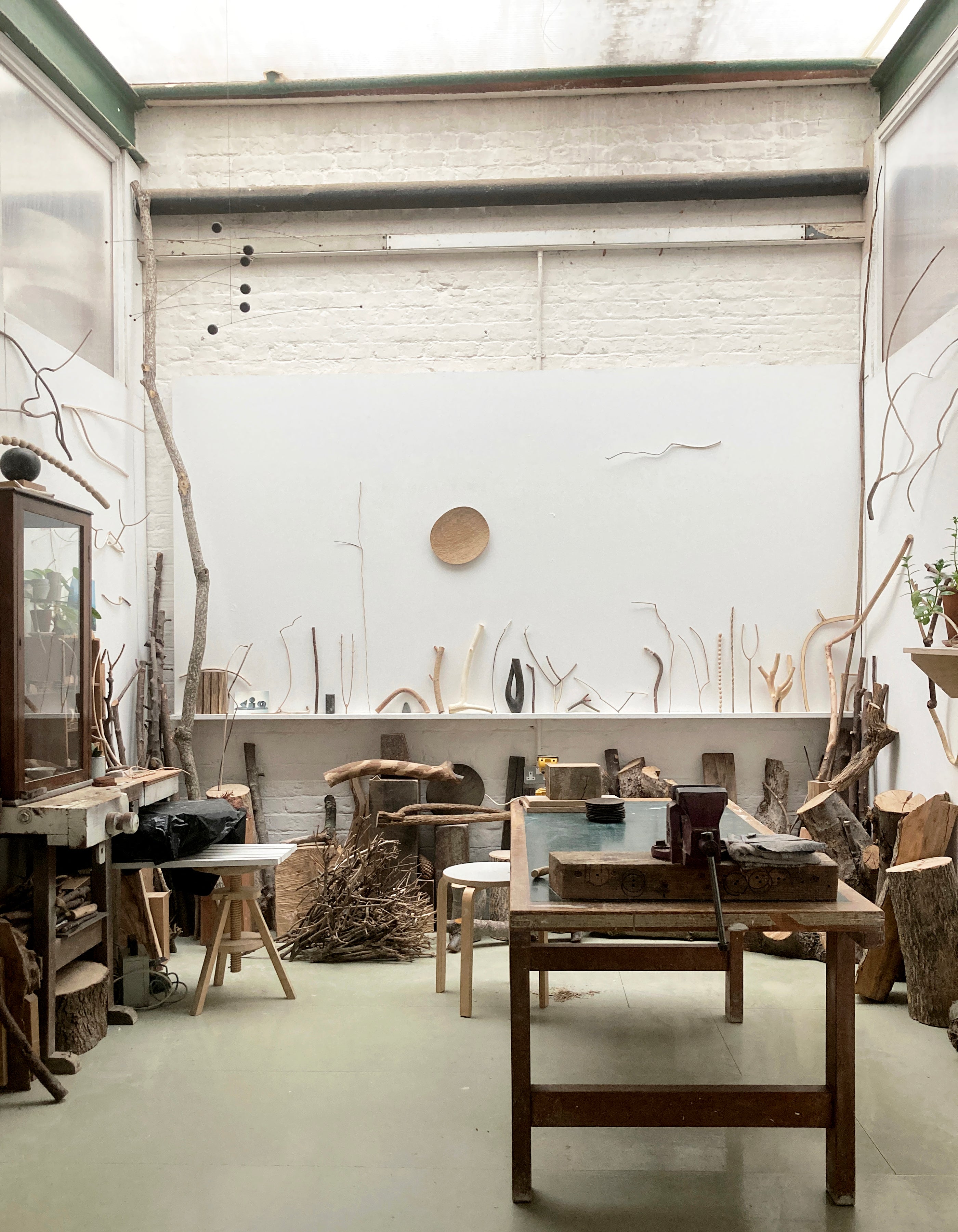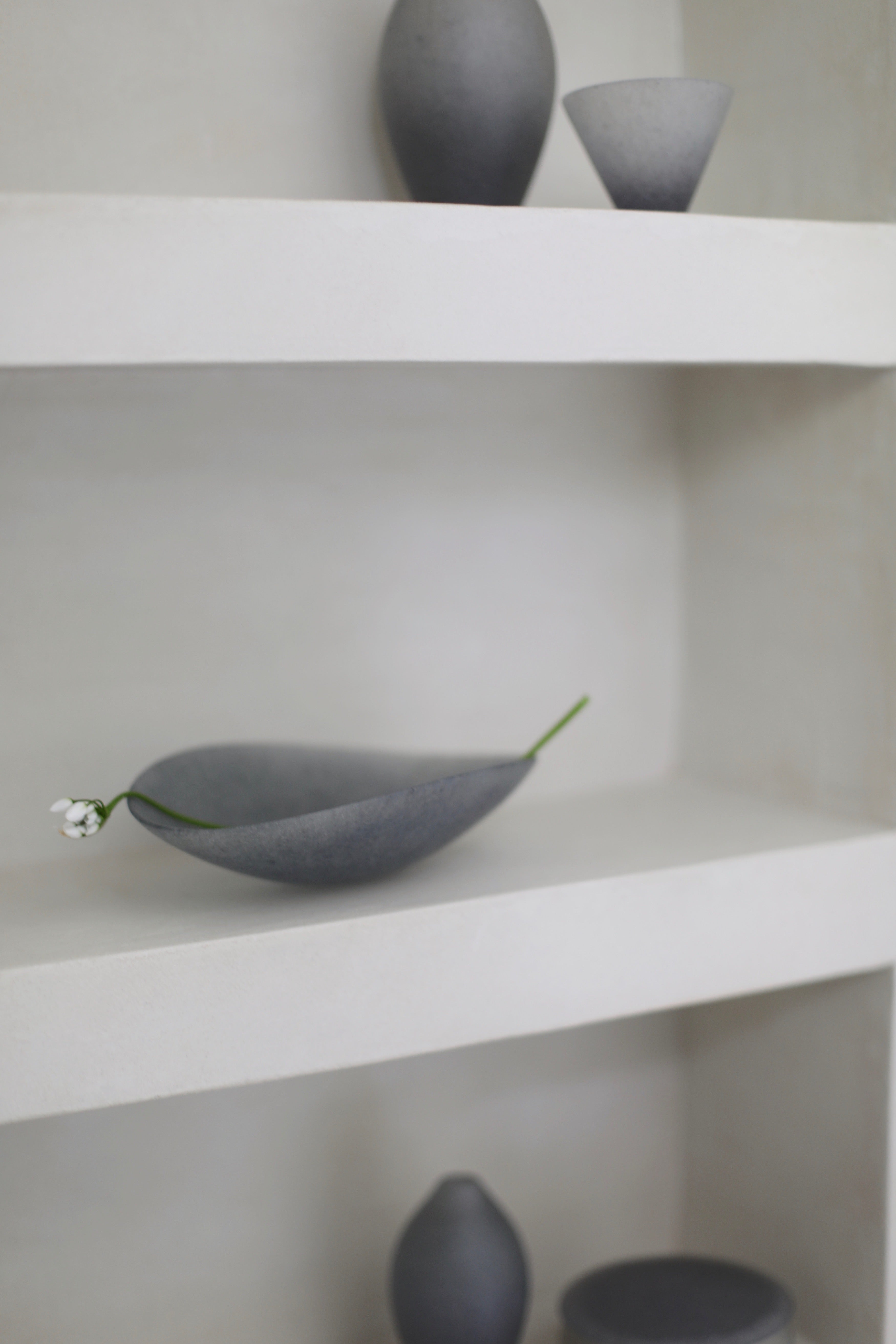
MAIKO TSUTSUMI
Maiko Tsutsumi studied and apprenticed in furniture making and Japanese lacquer work in Kyoto in the 1990s before moving to London to study furniture design at the Royal College of Art. Tsutsumi later completed a practice based PhD, The Poetics of Everyday Objects, at Kingston University while working in the furniture and product design industry. In 2008, she took on the course leader role for MA Designer Maker at Camberwell College of Arts, University of the Arts London, which she ran until 2020. Tsutsumi has also taught, given talks and facilitated workshops in the UK and internationally.
The underlying principle of Tsutsumi’s practice - making, research, curating, teaching and facilitating - is of the craftsmanship that she began cultivating during her training in woodwork and Japanese lacquer work in Kyoto, Japan. Predating this education, frequent visits to the collection of ethnological objects at the National Museum of Ethnology in Osaka, sowed within her a lasting fascination in object and meaning-making. To Tsutsumi, this was the experience that firmly placed the act of tool-making in the sphere of humanity beyond cultural borders. Ethnological objects, folk objects and architectural details found in all cultures that speak of human ingenuity, and skills involved in their ‘come-to-be’ stayed as her key creative inspiration. Tsutsumi began working on curatorial projects as a way to broaden her range of pedagogical tools while working with students who are developing their individual or collective creative practices. This has given Tsutsumi an insight into the workings of creative processes, particularly those that involve engagement with materials and actions. Key concepts to Tsutsumi’s work are - material agency; making and problem solving skills (and how these relate to tacit knowledge); language (textual and speech) and gesture in creative processes. Tsutsumi continues to explore these themes in broader societal contexts, with a firm belief in the wisdom of conscious engagement: with inherent material qualities, and the skills to transform/configure these qualities into meaningful forms.
The underlying principle of Tsutsumi’s practice - making, research, curating, teaching and facilitating - is of the craftsmanship that she began cultivating during her training in woodwork and Japanese lacquer work in Kyoto, Japan. Predating this education, frequent visits to the collection of ethnological objects at the National Museum of Ethnology in Osaka, sowed within her a lasting fascination in object and meaning-making. To Tsutsumi, this was the experience that firmly placed the act of tool-making in the sphere of humanity beyond cultural borders. Ethnological objects, folk objects and architectural details found in all cultures that speak of human ingenuity, and skills involved in their ‘come-to-be’ stayed as her key creative inspiration. Tsutsumi began working on curatorial projects as a way to broaden her range of pedagogical tools while working with students who are developing their individual or collective creative practices. This has given Tsutsumi an insight into the workings of creative processes, particularly those that involve engagement with materials and actions. Key concepts to Tsutsumi’s work are - material agency; making and problem solving skills (and how these relate to tacit knowledge); language (textual and speech) and gesture in creative processes. Tsutsumi continues to explore these themes in broader societal contexts, with a firm belief in the wisdom of conscious engagement: with inherent material qualities, and the skills to transform/configure these qualities into meaningful forms.
Sorry, there are no products here.
Reset
